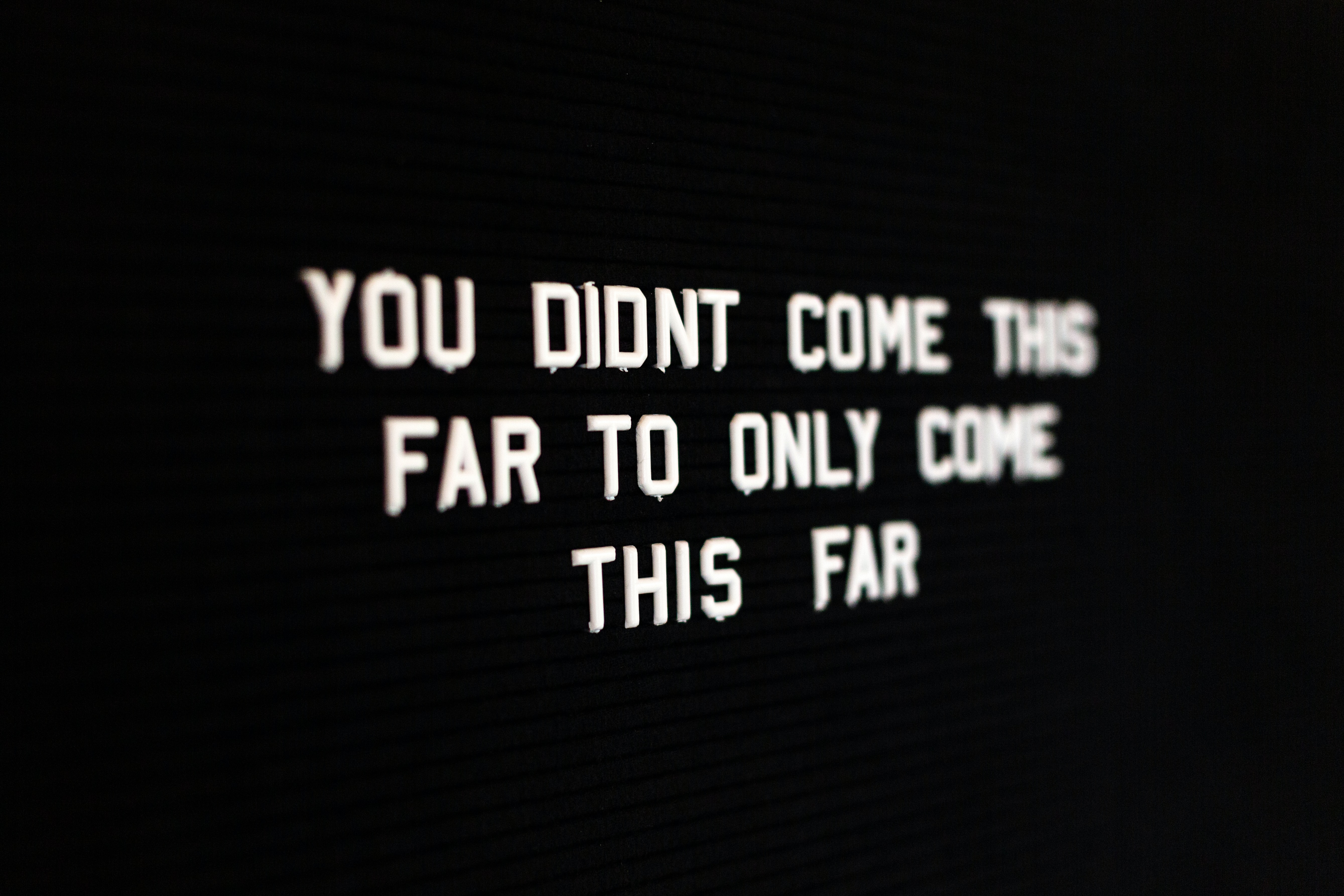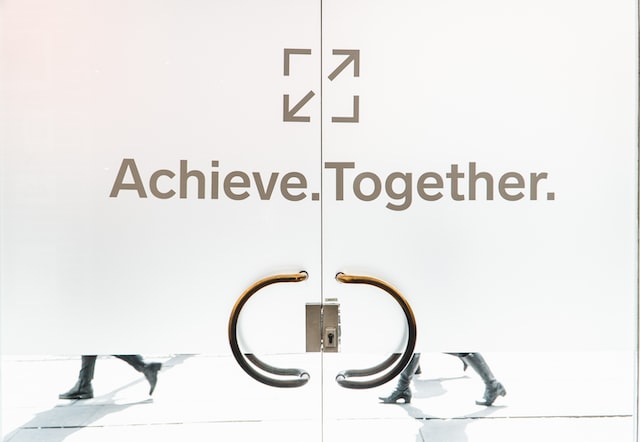Is your agency shortchanging itself with missed opportunities to leverage its creative output—and the business successes generated by its work?
In a perfect world, agencies would automatically enjoy shared rights to attribution and ownership of their work. They would be able to leverage their work products (and results) to build agency awareness, win new business and generate additional revenue.
Sadly, the world is NOT perfect (and getting further from it by the day).
In reality, agencies often struggle to have their name included on collaborative work and the right to share their work. They also struggle to access the data needed to understand the business impact of their work and make a strong case. All of which are necessary to demonstrate their capabilities and value.

It's peak irony that the same brands who make partnership decisions based on an agency's ability to show proof of results might turn around and deny their agency the right to show work.
“Agencies are inclined to speak through their work—it’s the language they use best. That’s why they scramble for exciting brands, brands people talk about and brands that will let them do great things. But what if you’re not allowed to say anything about that work—or even to say that you’re working for those brands at all?” — Jeff Sweat, founder, Sweat + Co. (in Adweek)
How do you value the ability to “own” your work?
When it comes to new business, nothing beats having relevant work to show and proof of results. Inability to show your work is a huge new business handicap that does financial harm by way of lost opportunities.
Think about it: If you won’t have the right to talk about your contributions and work products, or will not get access to internal data about the business impact of your work, or will not be able to share a case study on your website to generate future business, what are you getting in return for giving up those rights?
Should you upcharge to compensate when you are forced to give up those critical revenue-generating assets for your agency? If so, what is the price of future lost opportunities? How do you determine the cost of pouring resources into work that won’t help you grow? Should your agency think more carefully about whether it’s even worth taking on that work at all?
Missed opportunities
Earlier this year, Jeff Sweat wrote an article for Adweek about the ability to leverage agency work for PR purposes. At TDP, we focus on agency new business generation, so we see more missed opportunities around case studies. It’s an extension of the same issue.
As Sweat writes, “The work, and the buzz they get for it, is their product—it’s the currency agencies use to grow. If they can’t share it, they can’t attract new customers.” He couldn’t be more right. That's why agencies can't afford to cede control of the right to show work without a fight.

Why do so many agencies struggle to leverage their own work?
Here are some reasons why securing rights to show work is a common challenge for agencies:
- They don’t have it “on their radar”
- They mistakenly believe it should be tackled on the tail-end, rather than the front-end, of a client relationship
- They don’t want to rock the boat while vying to close a deal
- They are intimidated by the client-agency power differential in general and feel like they can’t afford to push back
- They lack strong negotiation skills
- They underestimate the importance of securing the right to show their work and results
- They may feel it's less relevant if they don’t have a PR team or know how to write a good case study
- They may have given up on trying to pursue the right to show their work after previous attempts were unsuccessful
- They are more focused on the immediate opportunity than future opportunities
Do any of these challenges sound familiar?
Let’s tackle these potential barriers
Firstly, negotiation skills can be learned, as can writing strong case studies.
Secondly, you (reader) should now know why the right to show work is too important for agencies to give up on. Share this post with someone who might need an extra nudge!
Thirdly, agency power is gained by the ability to demonstrate value. So the more you succumb to fear of standing up or pushing back in client negotiations, the longer you will be at a disadvantage.
Finally, let’s address when and how you should broach this discussion with your clients.
Securing the right to show your agency’s work and results
The best time to tackle this issue is at the start of a client relationship. Build it into your contract language. That way, you aren’t in the potentially awkward position of going back to ask for permission after the project ends.
Case Study Buddy suggests using what they call the “case study clause” in your contract as “an opportunity to cinch client buy-in and assuage fears.” You can do that, they continue, “by assuring them that no sensitive business data will be shared without their express permission and that they’ll have a chance to review and approve any case study.”
You can also facilitate the process by defining expectations for success early on. Can you agree on specific metrics to be met? That will make it easier for you to prove you’ve delivered value.
Consider using the right to show work as a bargaining chip if you encounter pushback. Where can you be compensated for the value you would miss out on without the right to show your work? And if you can’t get approval to publish a case study with the client’s name and logo on your website, is there a “next best” alternative that would be agreeable to both parties? Fallback plans will help prepare you to negotiate a favorable outcome.
Be ready to address the advantages for your client. For example:
- Well-written agency case studies add value for clients too, potentially drawing awareness to new initiatives, programs, team members, goals, purpose and results that otherwise may not have enjoyed the exposure.
- Strong agency case studies can create opportunities for client-agency collaboration via industry conferences and publications. These can reflect positively on the client's brand and team members as much as the agency.
- Letting agencies take credit for their work helps them attract the best caliber talent, directly impacting the quality of work received by agency clients.
- When clients allow agencies to enjoy shared credit for their work, it shows other agencies and vendors that they are good business partners.
- When it comes specifically to data-sharing and revealing business impact, clients enjoy better results when they are transparent with their agency partners. Sharing information can reveal opportunities for improvement while keeping them in the dark prevents optimization.
Done right, empowering agencies to share in the credit for their work and its results is truly a win-win for brands and agencies.

Check out resources like Case Study Buddy for more tips about how to secure client buy-in for case studies, such as:
- Understanding common fears and potential roadblocks so that you can alleviate them.
- Creating a defined process and timeline to make participation as easy as possible for clients.
Parting thoughts
Imagine if every agency came to the negotiation table with a right to show work clause written into their contracts. It would make it more difficult for clients to push back. By setting the expectation that it's an optional benefit bestowed at the client’s discretion, agencies have weakened their position. But that can shift with a more unified approach to its value and standards for the right to show work.
It’s time for agencies to stop missing out on something they need to build future success. If nothing else, the right to show work could be a welcome bargaining chip for agencies amid challenging economic conditions.
What’s been your experience with securing the right to show work? Care to share any stories or tips for other agencies?
Read more:
- 5 Ways For Agencies To Regain Power In Client-Agency Relationships
- How the Rise of Creative Effectiveness Affects Agency New Business
- How Can Your Agency Show Business Impact If Marketers Won't Share Data?
- What Is “Equal Stature” In A New Business Meeting, and Why Do You Need It?
- How To Invest In Your Agency’s Demonstrated Value
Learn how TDP can help you improve new business outcomes:
Image credits: Photo by Kristopher Roller on Unsplash; Photo by Drew Beamer on Unsplash; Photo by Jonathan Kemper on Unsplash


